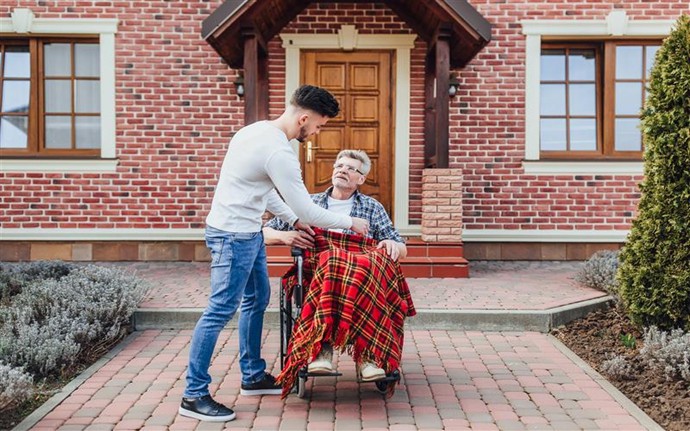Key Takeaways
- Respite care supports both carers and participants
- It can take place at home, in the community, or at a dedicated facility
- The NDIS funds Short-Term Accommodation (STA) as part of many plans
- Regular respite prevents burnout and promotes emotional balance
- Prime 1 Care delivers flexible, person-centred respite services across Australia
What is Respite Care?
Respite care is a short-term service designed to give primary carers a break, providing temporary relief from their caregiving responsibilities. It allows the participant to remain in a safe, supportive environment, while the carer can rest, recharge, and attend to personal needs or take a break from the demanding nature of their caregiving duties.
For NDIS participants, respite care is not just a relief for carers, but also a chance for the individual to experience new opportunities for growth, socialisation, and personal development. It may involve different types of care, including in-home respite, centre-based respite, or even residential respite care, depending on the needs of the participant and their carer.
Why Respite Care Matters?
Caring for someone with disability requires compassion and endurance. Without proper rest, even the most dedicated carers can experience fatigue condition or burnout. Respite care provides the opportunity to pause, reflect, and regain balance. For participants, it’s a refreshing change of scenery, a chance to socialise, develop independence, and engage in new experiences.
Regular breaks through respite significantly improve emotional wellbeing and prevent long-term stress for families. It ensures sustainability, helping carers continue their vital role with renewed strength.
Types of Respite Care Available
The NDIS recognises that everyone’s situation is unique. That’s why respite care can be flexible and tailored to individual needs.
1. In-Home Respite
Support workers come to your home to assist with daily activities such as personal care, meal preparation, or companionship while the regular carer takes a break.
2. Centre-Based Respite
Participants can visit a respite centre or community hub where they enjoy structured activities, group interaction, and skill-building programs in a safe setting.
3. Overnight or Short-Term Accommodation (STA)
This option allows participants to stay at a professional care facility or accommodation service for a few days, receiving 24-hour support while carers rest or travel.
4. Community or Recreational Respite
Designed to help participants connect socially, join community events, or enjoy outings with support staff, fostering both confidence and inclusion.
The Goals of Respite Care
The primary goals of respite care are twofold: supporting the needs of the NDIS participant and providing carers with much-needed relief.
- Support for Participants:
Respite care helps NDIS participants by offering them an opportunity to engage in a change of environment or routine. For some, this might be a temporary stay in a residential facility where they can receive care while enjoying activities tailored to their needs. For others, it might involve attending a community program or day centre where they can participate in activities they don’t get to experience regularly at home.
The aim is to maintain the participant’s emotional, social, and physical wellbeing while their usual care arrangements are temporarily altered. It can help reduce feelings of isolation and boredom, encourage independence, and allow the participant to make new connections.
Support for Carers:
Caring for a loved one with a disability or complex health needs is a demanding role that can lead to burnout if carers don’t have the opportunity to rest. Respite care provides this vital break, enabling carers to recharge physically, mentally, and emotionally. This temporary relief reduces stress and prevents caregiver burnout, ensuring that they can continue providing quality care for their loved one.
By taking a break, carers are better able to return to their caregiving role refreshed, more energetic, and with improved mental health. Respite care is thus an essential part of the overall support system for families and carers of people with disabilities.
How Respite Care Helps Both Participants and Carers?
The benefits of respite care are multifaceted, helping both the NDIS participant and the carer in several ways. Let’s break these benefits down further.
Benefits for NDIS Participants
- Social Interaction:
Respite care can introduce NDIS participants to new people, allowing them to build social networks. This is particularly beneficial for those who may have limited opportunities to socialise in their usual environment. Engaging with peers, making new friends, and learning new skills are all part of the positive experiences that respite care can offer.
- Independence and Empowerment:
For many NDIS participants, respite care offers an opportunity to experience a change of environment. This can encourage a sense of independence, as they might be involved in decision-making or personal care in a different setting. It also helps participants build confidence, develop new skills, and have experiences that enhance their personal growth.
- Relief from Daily Routines:
Respite care provides a break from the usual routines that may feel monotonous or restrictive. For those who receive daily care, this break can be refreshing. Participants may benefit from different activities or therapies that are designed to meet their unique needs and interests.
- Health and Wellbeing:
Being in a different setting, whether it’s a community-based program or a residential care facility, allows participants to receive specialised care and therapies tailored to their needs. This can help manage physical, emotional, or psychological health in ways that complement their regular care.
Benefits for Carers
- Physical and Emotional Recharge:
Caring for a loved one with a disability is physically and emotionally demanding. Respite care allows carers to rest, recuperate, and focus on their own health. By taking a break, carers can return to their role feeling refreshed, with increased capacity to provide better care in the long run.
- Improved Mental Health:
Continuous caregiving without breaks can lead to stress, anxiety, and depression. Respite care provides an opportunity for carers to manage their own wellbeing, which is essential for maintaining a positive caregiving experience. It offers peace of mind knowing that their loved one is being cared for in a safe and supportive environment.
- Personal Time:
For many carers, respite care offers a chance to reconnect with their own lives and interests. Whether it’s spending time with other family members, pursuing hobbies, or simply relaxing, respite care ensures that carers don’t neglect their own needs.
- Strengthened Family Relationships:
Taking a break from caregiving responsibilities can help carers restore balance in their family life. It enables them to focus on other family members and rekindle relationships that may have been affected by the demands of caregiving. This strengthens family bonds and promotes a healthier home environment.
How to Access Respite Care Through NDIS?
If you’re an NDIS participant or carer, you can access respite care through your NDIS plan. Respite care may be funded as part of your NDIS support package under capacity-building supports or short-term accommodation. To access respite care:
- Review Your NDIS Plan: Check if respite care is included in your current NDIS plan. If not, you can discuss with your NDIS planner to have it added.
- Find a Suitable Provider: Various providers offer respite care services, from in-home services to centre-based or residential care. Look for a provider that aligns with your needs, goals, and preferences.
- Speak to Your Support Coordinator: If you have a support coordinator, they can help you find the right respite care options and assist in organising your services.
- Coordinate with Your Carer: If you’re a participant, make sure that the respite care arrangements suit the needs of your carer as well, ensuring that both the participant and the carer benefit from the service.
Prime 1 Care Approach to Respite Care
At Prime 1 Care, respite means more than temporary respite care services and support, it’s about building trust, connection, and consistency in care. Every participant receives individual attention in a warm, respectful environment designed to feel like home.
Our respite care services are guided by:
- Personalised Planning: We take time to understand your goals and preferences, working closely with support coordinators in the NDIS to ensure your respite aligns with your broader plan.
- Qualified Carers: Each team member is trained in disability care, safety, and communication.
- Engagement and Fun: Activities are designed to nurture creativity, independence, and social interaction.
- Safe Environments: Clean, accessible, and welcoming spaces where participants feel valued and supported.
When to Consider Respite Care?
You may benefit from respite care if:
- You feel physically or emotionally exhausted from full-time caring
- The participant wants to develop independence or meet new people
- There’s an upcoming holiday, family event, or health commitment
- Your NDIS plan includes Short-Term Accommodation (STA) funding
Early planning ensures you and your loved one get the most from the experience, with comfort, confidence, and continuity of care.
Conclusion
Respite care strengthens relationships, preserves wellbeing, and ensures consistent, compassionate support for both participants and carers. It’s not just a service, it’s an opportunity to restore balance and quality of life. At Prime 1 Care, we deliver respite care that feels reassuring, engaging, and respectful. Our team helps you make the most of your NDIS plan with flexible, person-centred options designed to meet your goals. Contact us today to discuss how our respite care services can bring balance and renewed energy to your NDIS journey.
FAQs:
What is respite care under the NDIS?
Respite care, or short-term accommodation, provides temporary support for participants while giving carers time to rest or attend to other responsibilities.
Who is eligible for NDIS-funded respite care?
Participants with funding in their NDIS plan for short-term accommodation or similar supports can access respite services.
How long can respite care last?
Respite may last a few hours, a day, or up to 14 days, depending on individual plans and requirements.
Can respite care be provided at home?
Yes. In-home respite services are available, offering professional support in a familiar setting.
Does respite care help participants build independence?
Absolutely. It allows participants to engage socially, gain confidence, and practise skills in a supportive environment.






